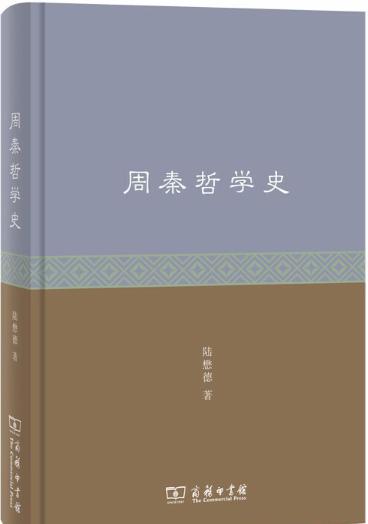
The history of Chinese philosophy, as an independent discipline, began in the May Fourth period. Hu Shi's Outline of the History of Chinese Philosophy and Feng Youlan's History of Chinese Philosophy are the founding works of this discipline. In the process of sorting out the development of the discipline of the history of Chinese philosophy in the 20th century, some non-mainstream works are often overlooked. In fact, these non-mainstream works also have their academic historical significance, such as the History of Zhou Qin Philosophy (by Lu Maode) and the History of Chinese Philosophy (by Zhong Tai), published in 1923 and 1929, respectively.
Hu Shi's Outline of the History of Chinese Philosophy is the first cornerstone for the construction of the discipline of the history of Chinese philosophy. Hu Shi opposed the "Xingu" who worshipped Confucian classics with "doubtful antiquity", distinguished the "boundary" between philosophy and classics, and endowed the history of Chinese philosophy with the character of modernity that came from classics independently. This is the most significant feature that distinguishes him from chen dichen's lecture notes on the history of Chinese philosophy and Xie Wuliang's history of Chinese philosophy. After that, Hu Shi said: "The Outline of the History of Chinese Philosophy" "The function of this book can change the color of the history of Chinese philosophy." The so-called "discoloration" is to change the color of the scriptures that were previously similar to Chen Dichen and Xie Wuliang, which were on the history of Chinese philosophy. However, this "discoloration" is essentially a shift from the paradigm of classics to the paradigm of Western studies. Since philosophy comes from the Western disciplinary system, the history of Chinese philosophy, while separating itself from scripture, will inevitably produce a "dependence" on Western philosophy. However, Chinese philosophy has its own national characteristics, and if we do not pay attention to this, then the history of Chinese philosophy will only become a copy of Western philosophy in China. In fact, both Hu Shi and Feng Youlan's writings have such problems. For example, Jin Yuelin pointed out in his review report on Feng Youlan's "History of Chinese Philosophy" that "when we read that book, we inevitably have a strange impression, and sometimes we think that the author of that book is an American who studies Chinese thought." That is to say, Feng Youlan's interpretation of the modernity of Chinese philosophy dissolves the national characteristics of traditional Chinese philosophy.
It is precisely in view of this that lu maode and Zhong Tai's writings challenge Hu Shi's Outline of the History of Chinese Philosophy. The former believes that Hu Shi's western-style epistemological (logical method) vision of pre-Qin philosophy is completely obliterated the characteristics of Chinese philosophy, so its material structure is still based on the traditional six schools of thought; the latter emphasizes that Chinese and Western philosophy are independent of each other, and using Western philosophical terms to describe Chinese philosophy will distort the true face of the latter, which is extremely unreasonable, so it is extremely unreasonable to follow the traditional terminology and abandon the Western philosophical terms. In short, they tried to purify all traces of Western philosophy in the study of the history of Chinese philosophy, in order to reject the Western philosophical paradigm to maintain the nationality of traditional Chinese philosophy. Although this was not generally accepted and recognized by the Chinese philosophical historians later, the works of Lu Maode and Zhong Tai still have academic historical value, that is, their challenge to Hu Shi highlighted the contradiction between the modernity and nationality of the discipline of Chinese philosophy history, and became a problem that Hu Shi had to think about when studying the history of Chinese philosophy.
In fact, Feng Youlan thought about the contradictions revealed by Lu Maode and Zhong Tai, and proposed to construct the discipline of the history of Chinese philosophy from the two aspects of "formal system" and substantive system. He believes that in the construction of the discipline of the history of Chinese philosophy, on the one hand, it is necessary to reconstruct the logic of the formal system of traditional Chinese philosophy to make it modern, and on the other hand, it is necessary to show the characteristics of traditional Chinese philosophy that are different from Western philosophy in a substantive system, so that it has a national character. After the publication of Feng Youlan's History of Chinese Philosophy, it was soon replaced by Hu Shi's Outline of the History of Chinese Philosophy. This is not only because it has the general historical integrity that the latter lacks, but more importantly, it embodies the consciousness of thinking about how to resolve the contradiction between modernity and nationality, and strives to unify the two. It can be seen from this that the works of Lu Maode and Zhong Tai constitute an intermediate link from Hu Shi to Feng Youlan in academic history. This reminds us that non-mainstream academic works should also be carefully analyzed when studying academic history.
Chinese Social Science Daily/ 2016/November/22/Philosophy 002nd Edition